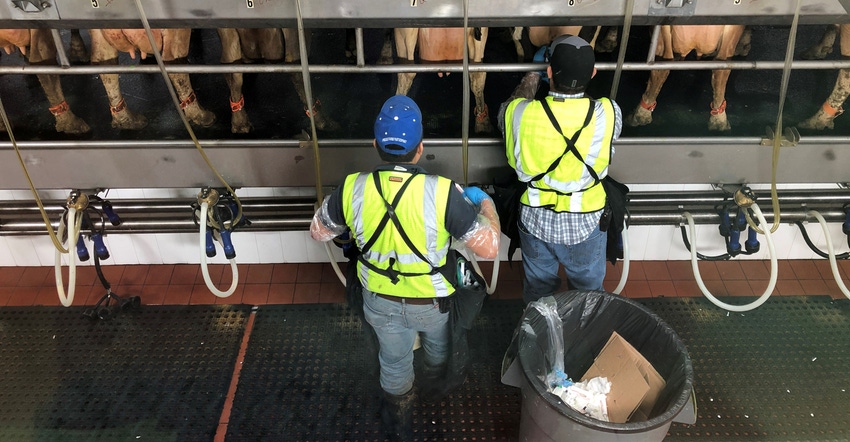
Last year’s pandemic highlighted the importance of health and safety of ag and food processing workers. When those workers became ill with COVID-19, processing lines and meat plants had to reduce hours or close.
The impact of meat processing plant closures specifically hit Minnesota hard. Many livestock and poultry farmers were left with full barns with no market. Farmers were forced to find other processors or euthanize their animals.
To help provide some safeguard for these ag workers, Gov. Tim Walz signed an executive order to establish the Governor’s Committee on the Safety, Health and Well-being of Agricultural and Food Processing Workers.
Noting that agriculture and food processing are foundational to Minnesota’s economy, Walz said that workers in these industries face challenges with workplace safety and employment protections, as well as access to safe housing, health care and transportation.
“We all share responsibility for addressing these challenges, and I am grateful to the leaders from across the state who stepped up to serve on this committee,” he said.
The committee will be co-chaired by Andrea Vaubel, Minnesota Department of Agriculture deputy commissioner, and Hamse Warfa, Department of Employment and Economic Development deputy commissioner of Workforce Development.
Committee members will serve terms that expire on April 3, 2023. Members were selected to include voices from public health, community organizations, labor, ag industry and state agencies.
Appointed to serve are:
Rena Wong, United Food and Commercial Workers Local 663
Jennifer Christensen, United Food and Commercial Workers Local 1189
Colin Laffey, Southern Minnesota Regional Legal Services
Emilia Gonzalez Avalos, Unidos MN
Rodolfo Gutierrez, HACER
Susan Bishop, Minnesota Department of Health
Nicole Blissenbach, Minnesota Department of Labor and Industry
Kevin Paap, Minnesota Farm Bureau
Tamara Nelsen, Minnesota AgriGrowth Council
Gary Wertish, Minnesota Farmers Union
Kiza Olson, Meeker-McLeod-Sibley Community Health Services
Sarah Berry, Southwest/West Central Community Health Board
Kristi Halvarson, Community Health Service Inc
The committee has several objectives that begin with the coordination of resources and outreach for the 2021 growing, harvesting and processing season:
Be proactive. Design a proactive strategy to deploy public, private and nonprofit compliance resources to protect and promote the safety, health and well-being of agricultural and food processing workers, focusing on housing, transportation and workplaces.
Effectively communicate. Develop a system for effective communication between state agencies, community organizations, advocacy groups, and agricultural and food processing employers and workers, including the workers’ families and communities.
Assist health departments. Support and assist the Minnesota Department of Health, local public health departments and community organizations with the coordination of the COVID-19 response, including testing, vaccination, access to health care, and necessary assistance for the quarantine and isolation of workers and their families if they test positive or become ill.
Provide a forum. Provide government agencies, community organizations, advocacy groups, employer and worker organizations, employers, and workers with a forum to engage, analyze data and information, coordinate resources, and plan for future agricultural growing, food production and processing seasons.
$112 billion to economy
The governor’s order noted that the agricultural production and processing industries generate more than $112 billion annually in total economic impact and support more than 431,000 jobs in Minnesota. A significant number of workers are foreign laborers, recent immigrants and refugees, and seasonal workers. Roughly 77% of all farmworkers identify their preferred language as Spanish.
A 2009 University of Minnesota study estimated that 20,000 people migrate to Minnesota each summer to work the green pea and sweet corn seasons, just two of the many crops grown in Minnesota. About 12,000 workers are employed in Minnesota’s 33 meatpacking plants.
About the Author(s)
You May Also Like






